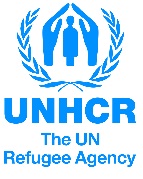Malnutrition admissions in Diffa : a trend on the rise
 Halima, a Bororo pastoralist and her 3-year old daughter Nafisa, a patient of the CRENI in Diffa diagnosed with marasmus and since discharged. © Save the Children / Chiara Trincia
Halima, a Bororo pastoralist and her 3-year old daughter Nafisa, a patient of the CRENI in Diffa diagnosed with marasmus and since discharged. © Save the Children / Chiara Trincia Over 150,000 displaced have sought refuge in Diffa, Niger, fleeing ongoing violence in Northeast Nigeria and the Lake Chad area, placing an unprecedented burden on one of Niger’s most vulnerable regions.
A worrying trend in the evolving context of Diffa’s humanitarian crisis has been a significant peak in malnutrition admission rates. Between January and April of 2015, the severe malnutrition treatment centres (CRENAS) in Diffa admitted 4,810 children, with an overall expected caseload of 10,431, constituting 46% of the overall expected in a mere four months. This is also more than double the admission rate in 2014 for the same period, namely 2,341.

Intensive malnutrition treatment centres (CRENI) have witnessed an analogous trend. Between January and April of this year, 442 children were admitted to the CRENIs in Diffa, of a total of 1,565 children anticipated for the year, constituting 28% of the year’s caseload. These are also far above those treated in 2014, namely 337.

There are a series of factors contributing to the peak in malnutrition rates. The first is the displacement, which has added 20% to an already-vulnerable population. This has entailed a heavy humanitarian caseload in the health districts of N’guigmi, Diffa and Mainé Soroa, especially given the scarcity of primary healthcare services: as an example, there is but one doctor per nearly 23,000 inhabitants in Diffa, and one nurse for every nearly 3,500.
Indeed, Diffa’s baseline vulnerability is a second important factor. Half of the population in Diffa lives on less than $1.25 per day and lacks access to safe drinking water. The region has one of the highest acute malnutrition rates in the country, and faces critical food insecurity every year. The fight against malnutrition is very much an ongoing one in Diffa, aggravated by the arrival of the lean season, which makes access to food and income all the more difficult for the host population and, in this case, the displaced as well.
The latest humanitarian evaluation carried out in Diffa by REACH on the status of the displaced in particular also sheds some light on the spike in admissions. The water and sanitation conditions of the displaced provide conducive conditions for declines in nutrition status, through repeated diarrheal infection: open defecation is practiced by nearly three-quarters of the surveyed population; over 40% of the surveyed reports not having sufficient, safe water; and nearly 90% of the population reports not having soap. Over 40% reported eating less than three meals per day as a coping strategy, in line with the repeated warnings issued by FEWSNET on the food insecurity situation of the displaced and host population alike in the Lake Chad area.
A further factor to consider is the ongoing interdiction on the trade of red pepper and fish, the former of particular value to the local population as a cash crop, between Diffa and the border regions with Nigeria. Matched with an ongoing ban on motorcycle travel, a major method of transportation, the local economy is suffering from the decrease in important local livelihood sources as well as the additional decrease in income foreseen by the lean season.
A last factor to consider is the course of humanitarian assistance since the beginning of 2015. Faced with serious security threats, humanitarian actors were not able to provide assistance to the displaced in the early weeks of the year, and the population in and around Lake Chad has only recently been removed from those areas in a state of critical vulnerability. With the resumption of humanitarian assistance and malnutrition screenings, more cases of malnutrition were detected and consequently referred.
In the face of this worrying trend, Save the Children has been responding with a greater number of mobile clinics, providing an integrated package of vaccinations, awareness-raising, curative care, screening and referral of malnourished children with the support of ECHO and UNICEF.
Niamey, the 10th of June, 2015
Save the Children International
Niger Country Office

